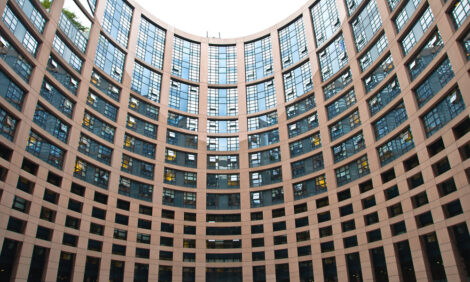



Why the pork supply chain needs the benefit of Biotech crops
UK - In 10,000 years the earth's population has doubled ten times from 10 million to 6 billion and will reach, by some estimates, 10 billion by 2050.
The success of this population increase is largely attributable to three crops - wheat, maize and rice. The oldest and most widespread of these crops is wheat. During the last 5 years, for the first time, the tonnage of wheat (although not the acreage) has fallen below that of maize and rice. The influence of wheat therefore in sustaining further population increases will be less than at any time during the history of mankind.
My recent visit to Monsanto's Research and Development headquarters in St Louis, Missouri - together with a team of JSR Genetics colleagues - certainly supports this fact and led me to consider the further implications for UK pig producers. Monsanto spend $500m per year on Biotech Research and Development. Of the $500m, virtually nothing is spent on wheat research with the majority of expenditure channelled into maize, Soya beans and rice. 90% of all Soya beans grown in the US are now genetically modified with high yields accompanied by lower pesticide use resulting in benefits to the environment. Their investment in new varieties of maize, Soya beans and rice are akin to the investment that Mercedes, BMW and Audi are putting into their new models, whilst the lack of investment in wheat bears similarities to the demise of Rover. This gives plant breeders in the UK a major competitive disadvantage. If you add the fashion for the Atkins Diet and Gluten Allergies then it is more than possible that for the first time in our history the acreage of wheat will start to decline.
There is no doubt that, if British consumers visited the Monsanto R & D facility, they would be impressed by what this company is doing and be aggrieved by the ruinous stance that the EU Commission is taking on the issue of biotech crops.
Basically the countries that support biotech, and the countries that don't, fall into two categories. The ones that do are countries where agriculture is an important part of GDP and there is a clear focus on improving self-sufficiency. Those countries that don't support biotech have an agricultural industry that is a small percentage of GDP and their consumers generally do not need to worry about where the next meal is coming from.
In the end, biotech crops will be accepted in the UK. It is interesting to see history repeating itself. In 1704, Jethro Tull invented the seed drill which resulted in eight times as many grains harvested for every grain sown and, like most agricultural innovators since, he was vilified. A century later the threshing machine was greeted by riots.
To feed 10 billion people by 2050 we are going to have to produce 35% more calories than we produce today and a growing proportion of that population is going to eat meat at least once a month (it takes 10 calories of grain to produce 1 calorie of meat). With global warming largely accepted (man-made or otherwise) we face more intense weather patterns coupled with a depletion, at an alarming rate, of the world's aquifers. It is more important than ever that good, sound science is made available to the world's farmers and growers. The work Monsanto is doing on drought resistant varieties will do more long-term good to these poorer countries GDP than debt cancellation and globe-trotting pop stars. Our team came back believing that Monsanto had a better understanding of what the needs of mankind will be in the next 100 years than most governments and environmental organisations.
Whilst we wait for biotech crops to be accepted in the UK once again, the UK pig producer faces a competitive disadvantage. If demand for non-biotech Soya in the UK is fuelled by environmental hysteria then a premium will have to be paid by the UK pig producers.
In addition, the enthusiasm for biomass and biofuel crops means that competition for land is greater than ever. The new Single Farm Payment system introduces another competitor - doing nothing at all! All these factors, coupled with the longer-term decline in wheat acreage, means the price of wheat is likely to rise over the next 12 months. As margins are squeezed, I can only see more attrition at the sharp end between retailer and processor.
In reality, it is impossible for individual governments to take longer view on agriculture than the next General Election. If Agriculture doesn't win many votes it doesn't matter anyway. They certainly are unable to set world-wide policies to allow grain and meat to be grown, raised and distributed in countries best suited for the task. A much maligned company like Monsanto is better positioned, and better able to understand the needs of the world-wide consumer, even if its vision includes the declining influence of wheat. Perhaps the UK farmers of tomorrow will be growing maize and Soya rather than wheat.
T S Rymer is Chairman of JSR Genetics








